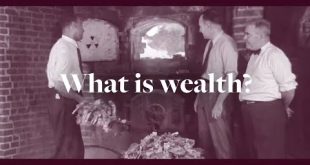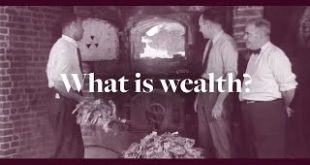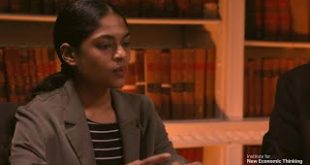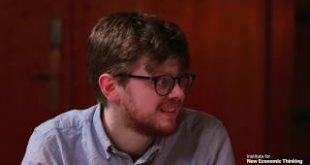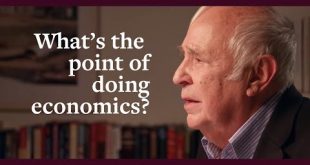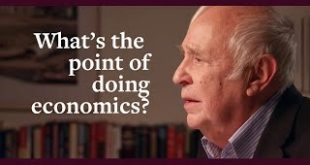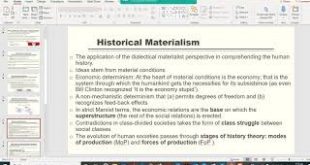One of the central subjects of economics is wealth. But there is not just one narrative of economic growth, but a multitude. In this third lecture in the INET series “How and How Not to do Economics,” Robert Skidelsky looks at three stories of development: neoclassical, structuralist, and Marxist. INET sincerely thanks the Julis-Rabinowitz Family for their generous support, who named this series to honor the spirit of a great educator and economic thinker, Uwe Reinhardt. For nearly 50...
Read More »Psychology and Economics | How & How NOT to Do Economics with Robert Skidelsky
To the non-economist the most striking fact about economics is the crudeness of its psychology. That’s because, for the economist, homo sapiens is homo economicus, or the human robot. In this sixth lecture in INET’s “How and How Not to Do Economics,” Robert Skidelsky looks at economics’ relationship with psychology. INET sincerely thanks the Julis-Rabinowitz Family for their generous support, who named this series to honor the spirit of a great educator and...
Read More »Economic Growth | How & How NOT to Do Economics with Robert Skidelsky
One of the central subjects of economics is wealth. But there is not just one narrative of economic growth, but a multitude. In this third lecture in the INET series “How and How Not to do Economics,” Robert Skidelsky looks at three stories of development: neoclassical, structuralist, and Marxist. INET sincerely thanks the Julis-Rabinowitz Family for their generous support, who named this series to honor the spirit of a great educator and economic thinker, Uwe Reinhardt. For...
Read More »[DISCUSSION] What Is Economics About? | How & How NOT to Do Economics | Robert Skidelsky
Following Robert Skidelsky’s lecture “What Is Economics About?,” he leads a discussion with students. INET sincerely thanks the Julis-Rabinowitz Family for their generous support, who named this series to honor the spirit of a great educator and economic thinker, Uwe Reinhardt. For nearly 50 years, the late Uwe Reinhardt was a beloved economist and professor at Princeton University. Known best for helping to shape critical discourse around healthcare markets, his biting...
Read More »[DISCUSSION] Economics & Power | How & How NOT to Do Economics | Robert Skidelsky
Following Robert Skidelsky’s lecture “Economics and Power” he leads a discussion with students. INET sincerely thanks the Julis-Rabinowitz Family for their generous support, who named this series to honor the spirit of a great educator and economic thinker, Uwe Reinhardt. For nearly 50 years, the late Uwe Reinhardt was a beloved economist and professor at Princeton University. Known best for helping to shape critical discourse around healthcare markets, his biting wit...
Read More »Psychology and Economics | How & How NOT to Do Economics with Robert Skidelsky
To the non-economist the most striking fact about economics is the crudeness of its psychology. That’s because, for the economist, homo sapiens is homo economicus, or the human robot. In this sixth lecture in INET’s “How and How Not to Do Economics,” Robert Skidelsky looks at economics’ relationship with psychology. INET sincerely thanks the Julis-Rabinowitz Family for their generous support, who named this series to honor the spirit of a great educator and economic thinker, Uwe...
Read More »What Is Economics About? | How & How NOT to Do Economics with Robert Skidelsky
Why did economists largely fail to predict the 2008-09 financial crisis? In the first lecture in his INET series, “How and How Not to do Economics,” Robert Skidelsky looks at a neglected cause: methodology. The way economists build their models determines the answers they give to practical questions. INET sincerely thanks the Julis-Rabinowitz Family for their generous support, who named this series to honor the spirit of a great educator and economic thinker, Uwe Reinhardt. For nearly 50...
Read More »What Is Economics About? | How & How NOT to Do Economics with Robert Skidelsky
Why did economists largely fail to predict the 2008-09 financial crisis? In the first lecture in his INET series, “How and How Not to do Economics,” Robert Skidelsky looks at a neglected cause: methodology. The way economists build their models determines the answers they give to practical questions. INET sincerely thanks the Julis-Rabinowitz Family for their generous support, who named this series to honor the spirit of a great educator and economic thinker, Uwe Reinhardt....
Read More »Unlimited Wants, Limited Resources | How & How NOT to Do Economics with Robert Skidelsky
Lionel Robbins defined economics as: “the science which studies behaviour as a relationship between unlimited wants and limited resources which have alternative uses.” How do we understand this tension between unlimited wants and limited resources? That’s what Robert Skidelsky examines in this second lecture of his INET series, “How and How Not to do Economics.” INET sincerely thanks the Julis-Rabinowitz Family for their generous support, who named this...
Read More »[DISCUSSION] Psychology and Economics | How & How NOT to Do Economics | Robert Skidelsky
Following Robert Skidelsky’s lecture “Psychology and Economics,” he leads a discussion with students. INET sincerely thanks the Julis-Rabinowitz Family for their generous support, who named this series to honor the spirit of a great educator and economic thinker, Uwe Reinhardt. For nearly 50 years, the late Uwe Reinhardt was a beloved economist and professor at Princeton University. Known best for helping to shape critical discourse around healthcare markets, his biting...
Read More » Robert Skidelsky
Robert Skidelsky

